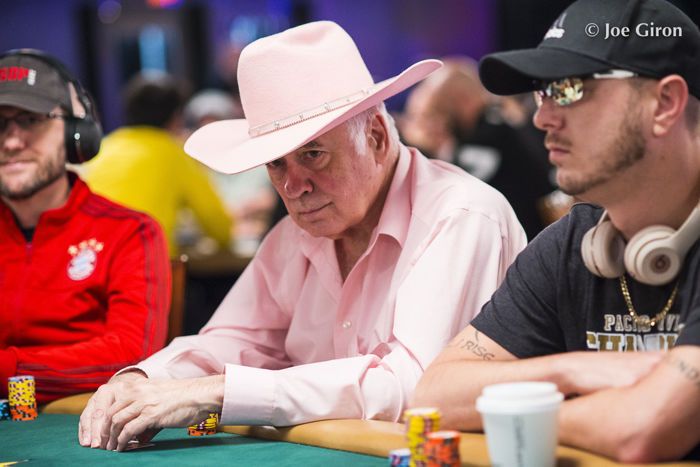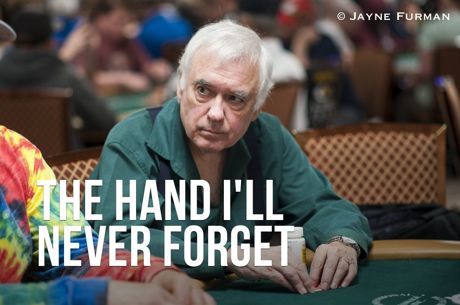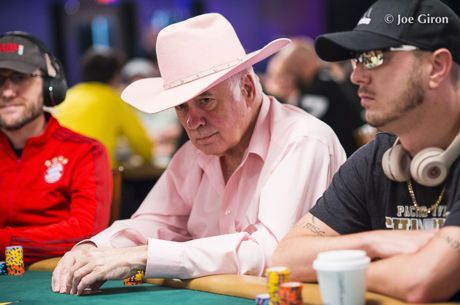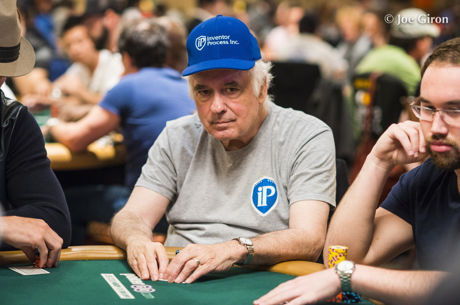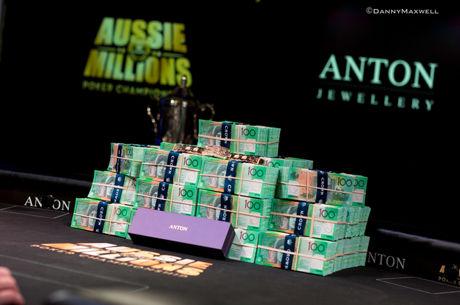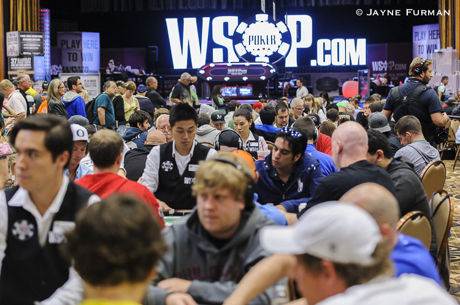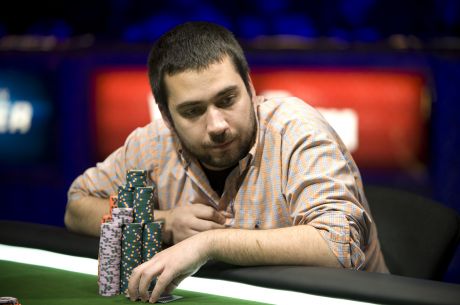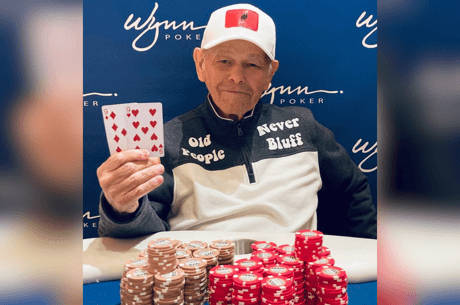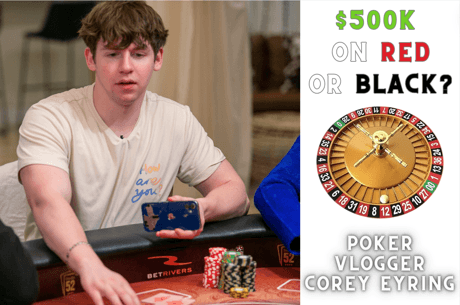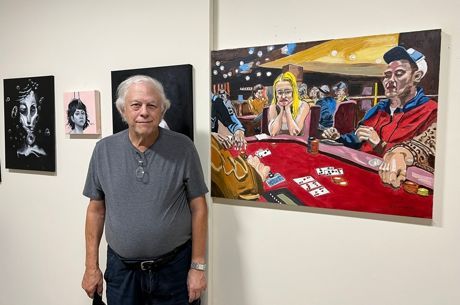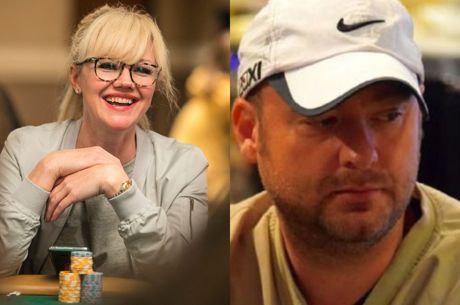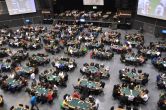The History of the Poker Satellite: Part 1 with Tom McEvoy
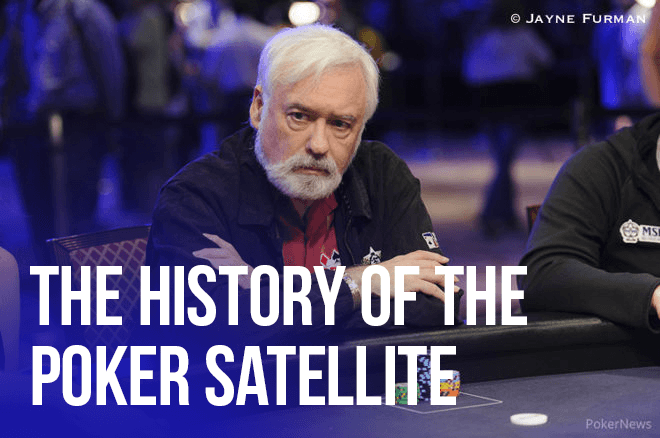
Table Of Contents
Acting as feeders into live events around the world, satellite tournaments are now a big part of a lot of professional players’ schedules and a chance for players who couldn’t normally afford the buy-in to enter for a lot less. But where did they come from?
We’ve spoken to two of poker’s most famous players of satellites. In our next article, we’ll be speaking with legendary online satellite conqueror and Unibet ambassador Dara O’Kearney. But first, we caught up with the first person to win the World Series after winning a seat into the event in a satellite.
Twenty years before Chris Moneymaker won the 2003 WSOP Main Event from an online entry priced at just $38, Tom McEvoy entered a World Series qualifier in Las Vegas in 1983. From that satellite qualifier, he went on to win the WSOP Main Event for $540,000.
But that only tells half the story.
The Birth of the Main Event Satellite
“For a number of years, Eric Drache was the tournament director for the World Series for the Binion family at Binion’s Horseshoe where the tournament was held until 2003. They weren’t getting enough entries in the Main Event in 1982. Back then, $10,000 was worth a lot more than it is today. Drache saw a bunch of guys playing a cash game and he said ‘Why don’t you guys each put up a thousand bucks and the winner will get a seat in the Main Event?’”
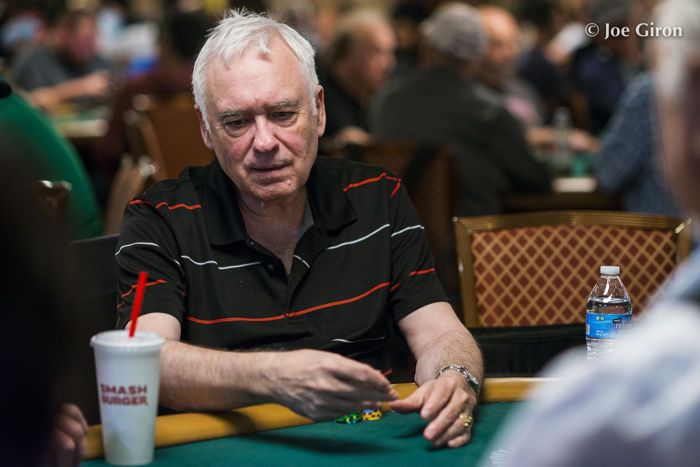
"That was one year before I won the satellite. Drache had the concept in place and he decided to really push satellites in 1983. Other casinos got on the bandwagon for a smaller amount. The guy who came second to me in the 1983 World Series of Poker Main Event was Rod Peate. He’s still alive but he’s not too active in poker anymore. The Bingo Palace, now called the Palace Station, put on a satellite which was $110 - ten dollars to the house, a hundred to the kitty. I played a couple of them and didn’t win but Rod Peate did win one and that’s how he got in.”
"I was playing every tournament in town that I could get in. I had a lot more experience than most and maybe more than the whole field that year."
Although Rod Peate was unknown to poker media and even to bigger players, McEvoy had played with him dozens of times. Their conjoined destiny for the final table of the WSOP Main Event seemed set.
“He was a guy I knew, but he was a virtual unknown to the big, more famous players. I’d been playing $10/$20 Limit Hold’em games with him. They didn’t have No Limit cash games in Vegas at the time. I was relatively inexperienced as a No Limit player, but I was very experienced as a tournament player as I’d played for four years in Las Vegas going into 1983. I was playing every tournament in town that I could get in. I had a lot more experience than most and maybe more than the whole field that year when I got into the Main Event through the satellite.”
McEvoy’s success that summer wasn’t limited to the Main Event. He’d already bagged a bracelet in a Limit Hold’em event a few events before the big one. Despite that, he didn’t buy straight in. Fate would have a hand before and after his winning satellite entry.
Satellite Negotiations
“I’d just won the Limit Hold’em tournament but I didn’t have all I myself in that, so I didn’t want to put up the full buy-in [for the $10,000 Main Event]. A guy that had a big piece of me in the Limit Hold’em, asked me to go partners on a one-table satellite. When I looked at the list, it was nine-handed and one of the nine was Johnny Chan. He didn’t get famous ‘til he won back-to-back Main Events in ‘87 and ‘88. But I knew how good a player he was. I said to him, 'Johnny, it’s my dream to get into the Main Event. I see you’re on the next satellite. I’d prefer not to play against you, so if you want to play it, I’ll wait and play a different one.’ He said ‘Nah, go ahead.’ So I jumped in, played the nine-handed satellite.”
McEvoy had negotiated Chan out of the running. And he got down to the final three players in the satellite, having picked the hardest two opponents he thought he’d face and swapped 5% in the Main with each of them should they qualify. But who were they?
"By the time the smoke cleared, two other trades for 1% left me with one-third of my action in the Main Event.”
“One of them was David Sklansksy, who’s written a lot of books. The other guy, Jimmy Doman, he’s passed away now. Before we started playing, I saw the nine players and thought ‘These two are pretty good players, so If I don’t win, maybe I could have a piece of them. Sure enough, we were the last three. Even if I lost, I still had 5% of one of them if I didn’t win it.”
Then a visitor stepped up to inquire about some action.
“Johnny Chan comes over to the table. Sklansky had the chip lead, I was second, Doman was third. Chan says ‘Tom, I’ll give you your buy-in back for 20% of your action if you win this satellite. I was still partners with this other guy, who had a third of me. I thought I should take it because if I lost, I could play another one and it wouldn’t cost me anything. We did it, and of course, I won. Now Sklansky and Doman both had 5% of me, Chan had 20% of me, and the partner to begin with had a third of me. By the time the smoke cleared, two other trades for 1% left me with one-third of my action in the Main Event.”
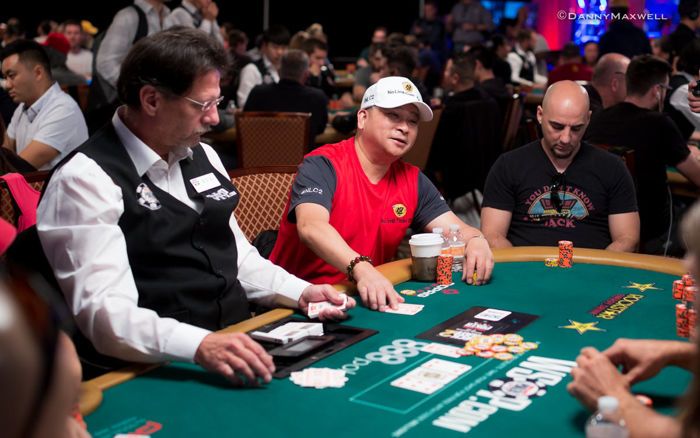
McEvoy's Main Event Run
To the Main. Johnny Chan was in the field, but McEvoy would not face ‘The Orient Express’ in the heat of battle, although the eventual WSOP legend was more present than most around the final table.
“Rod Peate was selling pieces of his action to the World Series and guess who bought 20% of his action? Johnny Chan. Both Rod Peate and I made the final table and so did Doyle Brunson. They made him a betting favorite. At the nine-handed final table, Terry Rogers, an Irish bookmaker made me 8/1 odds, so Eric Drache bet me. At a nine-handed table with all my tournament experience, I was a good price.”
"Everyone thought Doyle would eat us alive. But he made a horrendous mistake."
It was three-handed with McEvoy left facing just Rod Peate, the $100 qualifier, and double WSOP Main Event winner Doyle Brunson.
“It was the last year Doyle Brunson made the final table of the Main Event. Everyone thought Doyle would eat us alive. But he made a horrendous mistake against Rod Peate and got himself broke. He was probably a much better player than us back then and he thought he’d find a way to beat us. But Doyle went down in flames, much to everyone’s surprise.”
It would be the longest heads-up battle in Main Event history until 2018, and it would be McEvoy who eventually prevailed, even if Chan would end up making more than either McEvoy or Peate, who had sold so much of their action.
“Winning that tournament meant a lot more to me than it did him. I agreed to a deal, to soften the jump between the runner-up prize of $216,000 and winner’s prize of $540,000, because I thought it might just soften him up a little and allow me to win. And that’s what I did. We set a record that stood up until this year for heads-up play: seven and a half hours. All records eventually fall.”
In 35 years, McEvoy has turned into one of nearly three dozen returning Main Event winners. He’s seen a lot change in that time.
"We set a record that stood up until this year for heads-up play: seven and a half hours."
“The World Series was getting bigger and bigger every year, it was just taking off. When I first moved to Las Vegas in 1979, it was my goal to get to the WSOP Championship Event. I told a lot of my friends that I had a five-year plan to be playing in the Main Event. I made it one year early and then I won the tournament. There were 108 players in the Main Event in 1983. By current standards, that’s nothing, but there was no dead money. Now there are thousands of players, and at least half of them are dead money.”
McEvoy certainly hasn’t been that, cashing the Main Event in two of the last three years.
“This year, Joe Cada [who reached the final table] was the only past champion that outlasted me in the Main Event. I’ve played the Main Event every year since the year I won, except once, cashing four times. There’s one tournament I always want to play and that’s the World Series, obviously the Main Event, but I love the whole atmosphere.”
McEvoy’s journey to Main Event glory started with a single-table satellite and has never ended. He has $3,072,809 in live tournament winnings. His 1983 WSOP Main Event win is still the biggest of his career.
